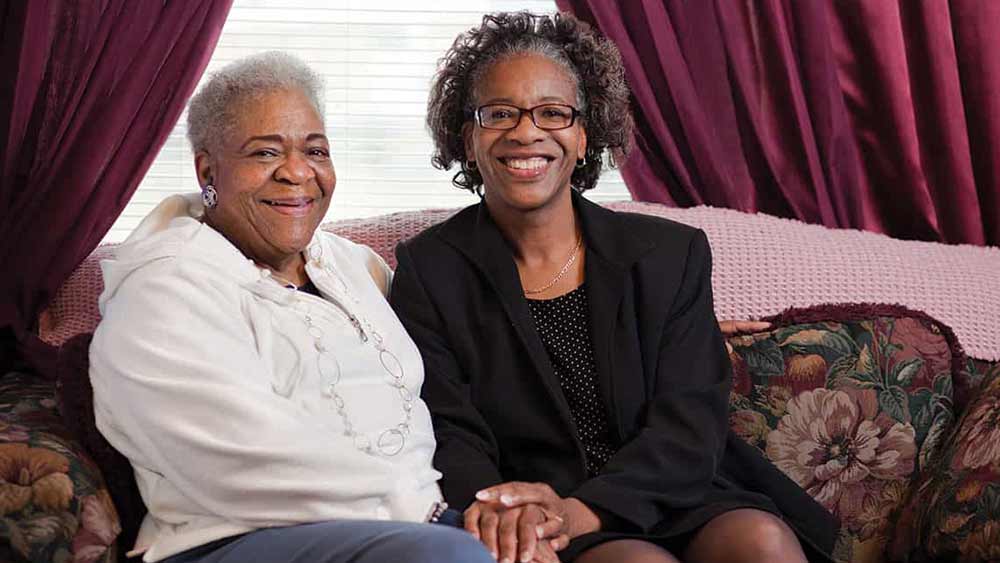

Helping Your Older Loved One Identify Community Resources
When it suddenly becomes your duty to care for an older loved one, you automatically get a crash course in how to help them with their needs; there’s no handbook to read, textbook to buy, or guidebook to follow. You either learn as you go, depend on friends and family who have also been thrown into the caregiving fire, or find trusted resources that can help you navigate this uncharted territory. Often, it’s a combination of all three!
While it might seem scary to take on this new role, the good news is that there are a variety of agencies and organizations on both the local and state levels that can provide you with much-needed help when your loved one needs it most. From transportation services to meal delivery services and beyond, here are a few ways to identify the right community resources for your aging loved one:
Area Agencies on Aging
There are Area Agencies on Aging in every state, on the city, county and regional levels. They are nonprofit organizations that help aging residents within their community find the right local resources they need to thrive. According to the government website about Area Agencies on Aging, they “coordinate and offer services that help older adults remain in their homes, if that is their preference, aided by services such as home-delivered meals, homemaker assistance, and whatever else it may take to make independent living a viable option.” You can search for your local Area Agency on Aging by visiting the Eldercare Locator, which is an extension of the main Area Agencies on Aging website.
National Council on Aging
Founded in 1950 as the first U.S. nonprofit that advocated for older adults, the National Council on Aging (NCOA) has an extensive library of resources for both caregivers and older adults. In addition to their articles on an array of senior-focused topics, including health and wellness, financial security, and current events, a section of the NCOA is dedicated to helping you connect with their partners and programs in your community. You can search the map using your ZIP code, and a selection of pre-vetted (read: trustworthy) resources will populate for you.
Meals on Wheels
Meals on Wheels is one of the most well-known food delivery programs for seniors, as it has supported “more than 5,000 community-based programs across the country that are dedicated to addressing senior isolation and hunger.” The Meals on Wheels network is vast: They have over 2 million staff members and volunteers working together to provide older adults with nutritious meals and a friendly greeting. Should you live far away from the loved one you are trying to care for, Meals on Wheels is a great way to ensure that they are eating every day. To qualify for home delivery of meals, your loved one must be 60 years of age or older, at risk of malnutrition, and unable to physically go into a senior center or community facility for a hot meal.
For Veterans: The Veterans Administration
Elderly veterans have access to benefits that the general public do not, including disability compensation, health care, and even burial services through the U.S. Department of Veterans Affairs (VA). Through the VA, you can coordinate geriatric and extended care for your loved one, including mental health services, memory loss resources and respite care, and you can ask for information on residential settings and nursing homes should they need housing. The VA also has a variety of community resources that you can access for your aging veteran, such as adult day care, skilled home health care, and hospice care.
Your Personal Network
Your personal network can be a wealth of knowledge when it comes to aging care resources. Ask your loved one’s doctors, administrators at your local community center, religious leaders, social workers, and friends for recommendations when you need them. Don’t be afraid to lean on those you know for help! Personal connection is a big part of feeling comfortable with the decisions that you are making, especially when it comes to trusting the care you are going to acquire for your aging loved one.
Right at Home
An excellent way to help your older loved one navigate their aging care journey is to employ professional in-home care services from Right at Home. Having care assistance from a professional rather than from family members can preserve your loved one’s sense of control and dignity, while allowing them to focus on their relationship and continue to do things they enjoy. Each Right at Home office carefully selects their caregivers using an enhanced screening process, and matches your loved one with the most compatible caregiver. The office also provides training to help ensure that caregivers will be sensitive to the preferences of your loved one, and the services caregivers provide are overseen by the office’s care team.
It’s important to remember that you’re not alone in caring for an aging family member. The above organizations can provide you with the information and resources you need to help your loved one age successfully, and they are only a phone call or click away.







